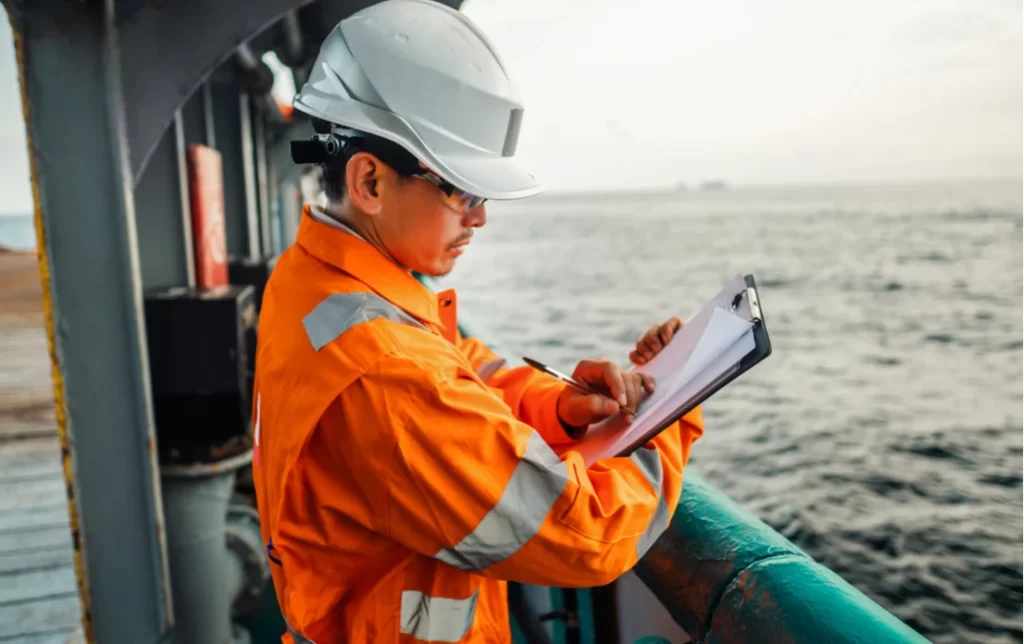
Menu
The “Vetting and Tanker Inspections” course is designed to equip participants with the essential skills and knowledge required for conducting effective vetting and inspection of oil tankers. This course covers industry standards, best practices, regulatory requirements, and practical techniques for ensuring the safety, compliance, and operational efficiency of tankers.
- Understanding Vetting Processes: Gain a thorough understanding of the vetting process, including its purpose and significance in the maritime industry.
- Inspection Techniques: Learn practical techniques for conducting comprehensive tanker inspections.
- Regulatory Compliance: Understand the regulatory requirements and industry standards governing tanker operations.
- Safety and Risk Management: Develop skills to identify potential safety risks and implement appropriate mitigation measures.
- Effective Reporting: Learn how to document inspection findings and communicate them effectively to relevant stakeholders
Introduction to Vetting and Inspections:
- Overview of vetting and its importance in the maritime industry
- Types of vetting inspections: SIRE (Ship Inspection Report Programme), CDI (Chemical Distribution Institute), and others
Regulatory Framework and Industry Standards:
- International regulations: SOLAS, MARPOL, ISM Code, and STCW
- Industry guidelines and standards: OCIMF (Oil Companies International Marine Forum), CDI, and TMSA (Tanker Management and Self Assessment)
Inspection Preparation and Planning:
- Pre-inspection preparations
- Creating inspection checklists
- Gathering necessary documentation and records
Conducting Tanker Inspections:
- Structural inspections: hull, deck, and superstructure
- Operational inspections: cargo handling, ballast systems, and machinery
- Safety inspections: firefighting equipment, lifeboats, and safety drills
Safety and Risk Management:
- Identifying and assessing safety risks
- Implementing risk mitigation measures
- Emergency response planning and drills
Common Inspection Findings and Deficiencies:
- Typical deficiencies found during tanker inspections
- Best practices for addressing and rectifying deficiencies
Effective Reporting and Communication:
- Documenting inspection findings
- Writing clear and concise inspection reports
- Communicating findings to ship operators, owners, and relevant authorities
Case Studies and Practical Exercises:
- Real-world examples of vetting and inspection scenarios
- Hands-on exercises in conducting inspections and reporting findings
- Group discussions on best practices and lessons learned
By the end of this course, participants will:
- Have a comprehensive understanding of the vetting process and its significance.
- Be proficient in conducting thorough tanker inspections.
- Understand and comply with regulatory requirements and industry standards.
- Be able to identify and manage safety risks effectively.
- Develop skills in documenting and communicating inspection findings.
This course is suitable for:
- Tanker Inspectors
- Marine Surveyors
- Fleet Managers
- Safety Officers
- Operations Managers
- Ship Officers and Crew
- Anyone involved in tanker operations and inspections
Enroll Now
To enroll in the “Vetting and Tanker Inspections” course, visit our course registration page or contact our course coordinator at Info@orientmct.com

Get In Touch!
Contact us for a quote or in case of any urgent queries please send us an email on: info@orientmct.com
we will get back to you right away!